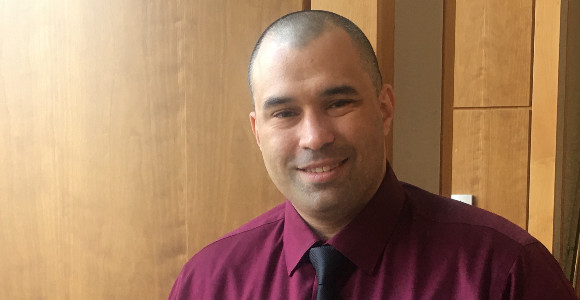
Anne Mallgrave, the director of the Rutgers Law Mortgage Foreclosure Project, and her students, help New Jersey residents save their homes from foreclosure.
By Jeanne Leong
People struggling to make their mortgage payments in New Jersey lose their homes to foreclosure more than residents of any other state in the nation.
Now, a Rutgers University–Camden law professor and her students are working to help residents avoid losing their homes to foreclosure.
Approximately 95 percent of homeowners facing foreclosure do not have legal representation when they go to court to try to keep their homes, according to Anne Mallgrave, the director of the Rutgers Law Mortgage Foreclosure Project.
“They don’t understand the terminology, they don’t understand the law, they don’t understand the process,” explains Mallgrave. “I’ve had conversations with homeowners over the past few years where they had a valid defense to the foreclosure action, but they were trying to represent themselves and didn’t know how to make that argument, it just wasn’t heard, and their homes and have been foreclosed on.”
Mallgrave says that, in many situations, the reasons people fall behind on paying their mortgage is because they are suffering from an illness or an accident, or lose their job.
New Jersey is at the top in home foreclosures with a rate of one in every 1,043 houses in the state being lost to foreclosure, according to RealtyTrac, a company that tracks and offers an online marketplace for foreclosures and defaulted properties in the United States.
RealtyTrac reports that four of the five counties with the highest foreclosure rates in the state are in South Jersey – Burlington, with one in every 627 houses in foreclosure, Camden with one in 641, Cumberland with one in 376, Gloucester with one in 544, and Salem with one in 460.
While New Jersey homeowners in foreclosure proceedings can take action to stay in their homes, many people do not know about the process. Through the state’s court-assisted mediation program re-implemented last year, homeowners can request a modification to their mortgages and keep their houses. Mallgrave has worked with homeowners who have not applied for mediation because they do not understand the papers they receive to notify them of the option of mediation. Some people are not receiving any information despite a law requiring plaintiffs’ attorneys to provide it.
Mallgrave says that 25 to 40 mediations are scheduled monthly for foreclosure cases in Camden County, and approximately 90 percent of homeowners in the cases do not have an attorney to represent them and guide them through the process.
“While they are going through the process, the foreclosure action continues to move on,” says Mallgrave. “If the homeowners haven’t filed an answer to the complaint, it moves on very quickly, and before they know it, in some cases, their home is listed for sheriff’s sale as they are still trying to negotiate a modification.”
Under Mallgrave’s guidance, Rutgers Law students participating in the Mortgage Foreclosure Project receive wide-ranging experience in serving as attorneys for their clients. Students conduct legal research; interview clients; counsel clients about their options; and prepare documents and briefs that are filed in court. In New Jersey, third-year law students are permitted to be certified to practice law and are allowed to represent a client at a mediation hearing.
“It is very rewarding to work with clients, not just from a legal perspective but also from a personal perspective,” says Ken Conklin, a Rutgers–Camden law student from Mount Laurel. “Sometimes navigating the procedures surrounding a foreclosure action can be both frustrating and intimidating for non-lawyers, and at times all it takes to improve our client’s state of well-being is simply for them to feel heard.”
Mallgrave says she and the students are very passionate about helping homeowners avoid foreclosure because it involves more than a house or the money owed on the mortgage.
“It could be an elderly client who has lived in a home for 35 years and doesn’t know what to do, or where to go, if the home is lost. It also could be a family with young children who haven’t told their children that their home is in foreclosure, and they are looking at being evicted. For the kids, it’s their home, their school, their community, the neighborhood, their friends. It’s a very important piece of their family and community.”
The program, launched in 2017, is funded by a grant from the New Jersey State Bar Foundation. Eventually, Mallgrave hopes to expand the program by developing a community education program in South Jersey to provide information to help homeowners understand and navigate the foreclosure process.
“We’re just trying to level the playing field from the get-go,” says Mallgrave. “The lack of understanding and the lack of information has a huge impact for homeowners on whether or not they are going to be able to save their home from foreclosure.”
Rutger Law student Ken Conklin assists New Jersey homeowners.
